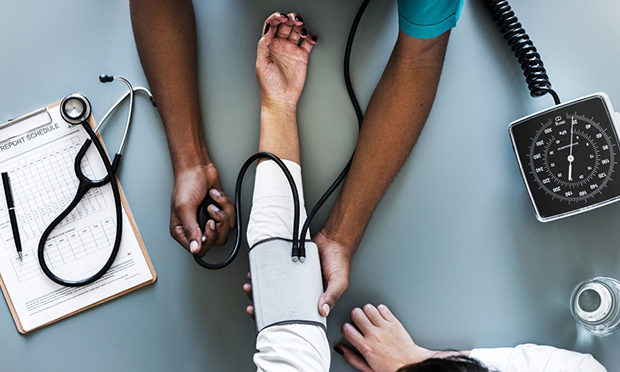Concerns raised for people ‘shut out of the system’ by digitised healthcare

Calls are being made for a “major piece of work” to identify how to better help residents who could be shut out of a healthcare system that has been increasingly digitised in response to the pandemic.
Jon Williams, executive director at local watchdog Healthwatch Hackney, spoke at the end of last week of his fears at the difficulties of reaching “those seldom-heard voices,” calling on both local authority and healthcare systems to work together with faith and community groups to better communicate.
Williams envisaged the “major challenge” will get worse as the economic impact of the crisis continues to bite, pointing to a continuing problem that has long made Hackney residents’ lives difficult. The borough has struggled with digital exclusion for years, with a 2012 report showing a quarter of residents at the time had never used the internet in their lives – the highest level of any London borough.
Health in Hackney scrutiny commission chair Cllr Ben Hayhurst said: “The most regular bit of feedback I get is the digitisation of access to primary care is great if you know what you’re doing, but for those that are on the wrong side, not being able to get a GP appointment and feeling like they’ve been shut out of the system.
“Four or five other councillors have come to me with this saying they’ve experienced it.
“It’s how we have a joined-up approach in terms of access for those that are on the wrong side of the digital divide and what is best practice elsewhere.”
Hackney Learning Trust figures released earlier this year, during a call-out for extra laptops for remote learning during lockdown, showed that 10 per cent of the borough’s children have no access to a device at all.
According to Healthwatch Hackney, the problem is compounded by a slump in confidence both in local and national government, as the results of a recent survey.
Williams added: “We were surprised to see local government also being mistrusted.
“There is a real problem developing where people do not trust the system at all, and it is important that we work together with community and faith groups to make sure that they don’t disappear. That’s my fear at the moment.”
Dr Mark Rickets, who chairs City & Hackney’s clinical commissioning group, said: “We would also welcome this sort of work on access. We know that there are around 1.6m consultations a year for people who are registered in City & Hackney with GPs. That is a lot of consultations.
“So is it a problem of some practices being not very well organised? Is it that that day there was somebody off sick and they could not get cover? Is it a more systemic problem? How big a problem is it for how many people? Is it disproportionately affecting certain people?
“The more information we can get to really understand when things are not going as well as we want would be really welcome.”
